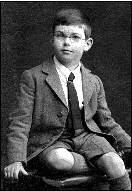
FAQ About Alan Watts

Who was Alan Watts?
Alan Watts was a British writer, speaker, and philosopher known for his work in interpreting and popularizing Eastern philosophy for Western audiences. Born on January 6, 1915, in Chislehurst, Kent, England, Watts lived a life dedicated to exploring and explaining the significance of Zen Buddhism, Taoism, and other Eastern philosophies, making them accessible to people in the West. He wrote numerous books and gave hundreds of lectures and audio recordings, which have continued to influence new generations interested in spirituality and meditation.

What is Alan Watts most famous for?
Alan Watts is most famous for his role in introducing and translating Eastern philosophies, particularly Zen Buddhism and Taoism, for Western audiences. His ability to articulate complex ideas in an accessible and engaging manner helped cultivate Western interest in Eastern spiritual practices. Books such as 'The Way of Zen' and 'The Book: On the Taboo Against Knowing Who You Are' are among his most celebrated works. Additionally, his recorded talks and radio broadcasts continue to be widely listened to and appreciated for their insight and wit.

What are the main themes in Alan Watts' teachings?
Alan Watts' teachings revolved around several key themes, including the interconnectedness of all things, the importance of living in the present moment, and the limitations of the Western worldview focused on materialism and science. He emphasized the value of Eastern philosophical perspectives, particularly those that promote mindfulness, meditation, and a deeper understanding of the self. Watts also frequently discussed the concepts of 'oneness' and 'non-duality,' encouraging people to transcend the illusion of separation and realize the fundamental unity of life.

How did Alan Watts contribute to the popularization of Zen Buddhism in the West?
Alan Watts played a crucial role in popularizing Zen Buddhism in the West through his books, lectures, and radio broadcasts. He skillfully translated complex Zen concepts into familiar ideas for Western audiences, thus making them more accessible and appealing. His book 'The Way of Zen,' published in 1957, was one of the first comprehensive introductions to Zen for Western readers and continues to be a significant text for those exploring the practice. Watts' engaging speaking style and ability to interweave philosophy with everyday life experiences allowed him to capture the attention of a broader audience, creating a lasting impact.

What are some of Alan Watts' most influential books?
Some of Alan Watts' most influential books include 'The Way of Zen' (1957), which provides an accessible introduction to Zen Buddhism; 'The Book: On the Taboo Against Knowing Who You Are' (1966), which explores identity and the self; 'Tao: The Watercourse Way' (published posthumously in 1975), discussing Taoism with a focus on its subtle and natural outlook on life; and 'Beyond Theology: The Art of Godmanship' (1964), which presents a critique on the institutional aspects of religion and spirituality. These works continue to be celebrated for their depth and ability to convey complex ideas engagingly.

Where did Alan Watts live and work during his life?
Alan Watts was born in Chislehurst, England, but he spent much of his professional life in the United States. He moved to the U.S. in 1938 to pursue a career in theology and philosophy, initially living in New York. Later, he became an Episcopal priest in Evanston, Illinois. Eventually, he moved to California, where he became a lecturer and teacher, notably at the Academy of Asian Studies in San Francisco. Watts continued to live and work in California until his death in 1973, spending part of his later life in a cabin on a houseboat in Sausalito, where he wrote and recorded many of his works.

What was Alan Watts' approach to Eastern spirituality?
Alan Watts approached Eastern spirituality with a blend of scholarly insight and practical application. He aimed to uncover the essence of Eastern traditions such as Zen Buddhism and Taoism and express their core ideas in a way that resonated with Western understanding. Watts was particularly focused on the experiential and transformative aspects of these philosophies, emphasizing self-realization, mindfulness, and the harmonious flow of life. Rather than adhering strictly to traditional dogmas, he often highlighted the experiential insights and paradoxical humor found within these spiritual paths.

Why did Alan Watts leave the ministry?
Alan Watts left the ministry because he became increasingly disillusioned with the institutional aspects of Christianity and wanted to explore spiritual ideas outside the constraints of organized religion. After serving as an Episcopal priest for several years, he felt that his interests and beliefs about spirituality were no longer aligned with the church's doctrines. This decision allowed him to fully dedicate his efforts to studying and teaching Eastern philosophies, which he believed offered deeper and more holistic insights into human existence and spirituality.

Did Alan Watts have any formal education in philosophy or religion?
Yes, Alan Watts had a formal education in philosophy and religion. After moving to the U.S., he formally studied theology at Seabury-Western Theological Seminary in Illinois, where he earned his master's degree in theology. This educational background, combined with his independent studies and personal exploration of Eastern philosophies, helped shape his distinctive approach to integrating and interpreting Eastern and Western philosophical traditions.

What impact did Alan Watts have on the counterculture movement of the 1960s?
Alan Watts had a significant impact on the counterculture movement of the 1960s by providing intellectual and spiritual resources that resonated with those questioning traditional societal norms. His teachings, which emphasized living in harmony with nature, questioning materialistic values, and exploring consciousness through meditation and psychedelics, aligned closely with the ethos of the counterculture. Watts' work informed and inspired many individuals who were part of this movement, offering an alternative worldview that encouraged personal enlightenment and the pursuit of deeper meaning in life.

How did Alan Watts' teachings influence modern spiritual practices?
Alan Watts' teachings have had a significant influence on modern spiritual practices, particularly regarding mindfulness and meditation. Through his accessible articulation of Eastern philosophies, he laid the groundwork for the widespread acceptance of these practices in the Western world. His concepts of living in the present moment, cultivating awareness, and the interconnection of all life have been echoed in contemporary wellness movements and have informed the practices of many modern spiritual teachers. Watts' legacy endures through his widespread presence in audio recordings, videos, and writings, which continue to inspire new generations.

Are there any documentaries or films about Alan Watts?
Yes, there are several documentaries and films about Alan Watts that explore his life and teachings. One notable documentary is "Why Not Now? Alan Watts on Life and Philosophy," which covers his philosophical insights and impact on Western thought. Additionally, "In the Mind of the Universe", a documentary that aired on BBC, features insights into his work. These films provide valuable perspectives on Watts' profound influence on philosophy, spirituality, and the quest for meaning.

How does Alan Watts describe the concept of 'oneness'?
Alan Watts describes the concept of 'oneness' as the realization that everything in the universe is fundamentally interconnected and interdependent. He often used metaphors and analogies, such as those involving waves and water, to illustrate how individual identities are part of a larger whole. According to Watts, the perception of separateness is an illusion, and true understanding comes from recognizing the unified nature of existence. This understanding can bring about a profound sense of harmony and peace, as individuals realize they are an integral part of the cosmic continuum.

What was Alan Watts' view on the nature of reality?
Alan Watts viewed the nature of reality as something far more complex and profound than conventional Western thought often acknowledges. He believed that reality is not a fixed, static entity but a dynamic and ever-changing process that can't be fully grasped through analysis and categorization alone. Watts emphasized that human perception is limited and often deceived by illusions of separateness and time. He encouraged people to adopt an experiential approach to understanding reality, allowing themselves to 'flow' with life's processes and accept the mystery and wonder of existence as it is.

Did Alan Watts advocate for the use of psychedelics?
Alan Watts was open to the use of psychedelics as tools for exploring consciousness but approached them with caution and respect. In the context of the 1960s, he recognized that psychedelics could potentially offer insights into the nature of the self and the universe, similar to those gained through deep meditation. However, Watts emphasized the importance of setting, preparation, and intent when using such substances, and he never advocated for their reckless or habitual use. He saw psychedelics as one potential means among many for exploring spiritual truths, rather than an end in themselves.

What role did Alan Watts have at the Academy of Asian Studies?
Alan Watts played a significant role at the Academy of Asian Studies in San Francisco, where he served as a faculty member and the dean during the 1950s. His work at the academy allowed him to delve deeply into Eastern philosophies and to teach and share these ideas with interested Western students. The academy provided an ideal environment for Watts to explore and refine his thoughts on Zen Buddhism, Taoism, and other Eastern traditions, contributing to his growing influence as a leading interpreter of these philosophies.

How can someone start learning about Alan Watts' philosophy?
To start learning about Alan Watts' philosophy, one could begin by reading some of his most influential books such as "The Way of Zen" and "The Book: On the Taboo Against Knowing Who You Are," which provide comprehensive introductions to his thought and exploration of Zen and identity. Listening to his recorded lectures and talks, many of which are available online, can also be an excellent way to gain insight into his teachings. These recordings often capture his engaging speaking style and ability to make complex philosophical concepts relatable and accessible.

Where can I find Alan Watts' lectures and talks?
Alan Watts' lectures and talks are widely available online and can be accessed through platforms such as YouTube and streaming services where they are often found in audio and video formats. Websites and organizations dedicated to preserving his work, such as the Alan Watts Organization, also provide access to a rich archive of his talks. Furthermore, some of his lectures have been compiled into audio collections that are available for purchase from various online retailers.

Did Alan Watts write about the concept of ego?
Yes, Alan Watts extensively discussed the concept of the ego in his writings and lectures. He viewed the ego as a social and mental construct that creates an illusion of separateness from the rest of the universe. Watts believed that the focus on ego leads to feelings of isolation and dissatisfaction, and he encouraged exploring practices like meditation to transcend the ego's limitations. His work often highlights the importance of realizing that one's true self is not the isolated ego, but rather a part of the greater interconnected whole.

Was Alan Watts ever affiliated with any religious organizations?
Alan Watts was affiliated with religious organizations early in his career. He was ordained as an Episcopal priest and served in this capacity for a number of years before leaving the clergy to pursue his interests in Eastern philosophies more freely. This transition reflected his growing disillusionment with organized religion and his desire to explore spirituality beyond traditional Christian doctrine. Watts' later work and teachings reflected a more universal and inclusive approach to spiritual inquiry.
